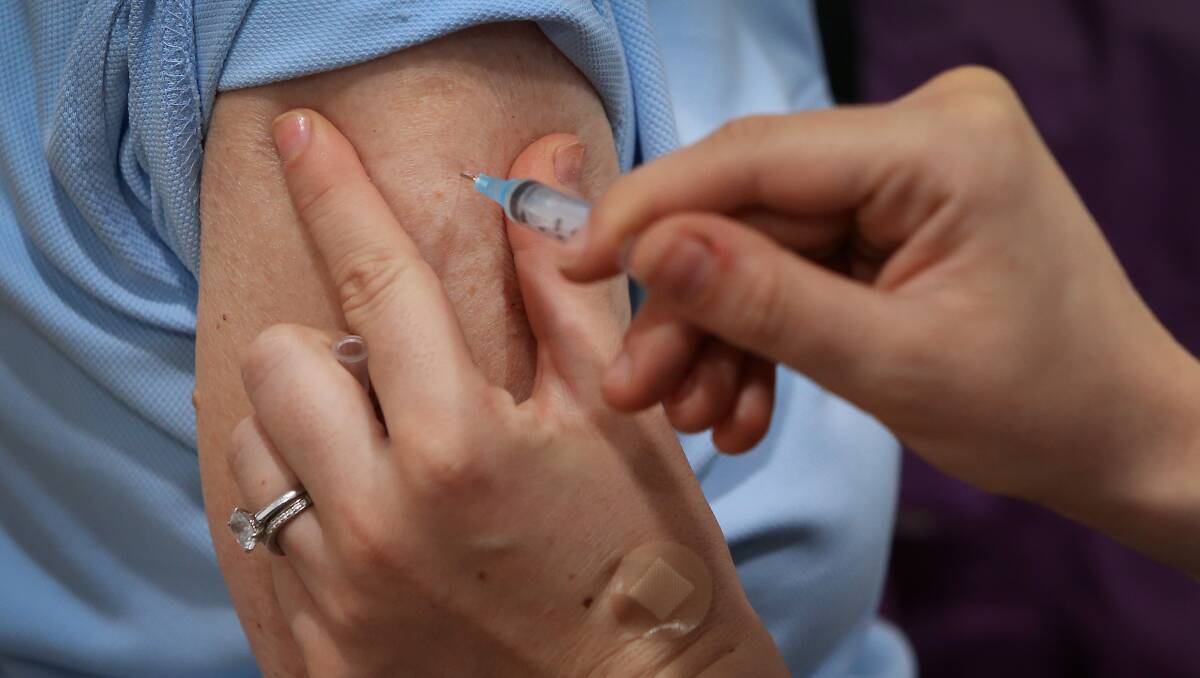
Australia’s chief medical officers and federal Health Minister Greg Hunt have said in the days following the incident that the vaccines were safe, but what does the incident mean for the country’s vaccine rollout going forward?
What happened with the Australian case?
The 44-year-old Victorian man at the centre of the case received the AstraZeneca vaccine on March 22.
Almost a fortnight later, the man was then admitted to the Box Hill Hospital in Melbourne with serious thrombosis and a low platelet count.
Following Friday’s news of the man’s hospitalisation, the Therapeutic Goods Administration, and the government’s vaccine advisory group convened urgent meetings and launched an investigation.
What does this mean for the COVID vaccine?
Unlike other countries, which have come under fire from medical experts for suspending the rollout of the AstraZeneca vaccine following cases of blood-clotting, Australia’s rollout is proceeding as normal.
That’s despite the national rollout coming under fire for being too slow and missing the federal government’s March deadline of having more than 4 million vaccines administered.
So far, almost 900,000 doses of the vaccine have been given to Australians who are part of either phase 1a or 1b of the rollout. More than 400,000 of them have been the AstraZeneca vaccine.
Health Minister Greg Hunt said the AstraZeneca vaccine was still safe to use and had undergone rigorous testing before being approved for use.
Professor Kidd said no changes to the vaccine rollout were required while the TGA and the Australian Technical Advisory Group on Immunisation were carrying out investigations into the blood-clotting incidents.
“The risk of serious side effects remain very low,” he said. “We have not been advised at this time by ATAGI or the TGA to pause the rollout of the AstraZeneca vaccine in Australia. We continue to follow the medical advice of our national experts.”
What advice around the vaccine has changed?
While health experts have said the benefits of receiving the COVID-19 vaccine far outweigh potential side effects, the government’s vaccine advisory group advised people who had received the vaccine to be aware of some symptoms.
“Consumers should be particularly alert to severe, persistent headaches that are different to their ‘usual’ pattern and do not settle with paracetamol or other painkillers,” the group said in a statement.
“If these symptoms occur, consumers should seek medical advice as soon as possible.”
Side effects such as fever, sore muscles, tiredness and headaches are expected following the vaccine. The advisory group said they usually started within 24 hours of the vaccination and lasted for one to two days.
Healthcare workers have been advised to look out for symptoms of potential rare blood-clotting conditions in patients who received the vaccine.
The advisory group said in late March, following reports of clotting incidents in Europe, that vaccines should be deferred for people who had a history of rare clotting conditions. However, the group said the advice was only a precautionary measure.
What happened with the blood clotting in other countries?
Several countries in Europe moved to suspend the rollout of the AstraZeneca vaccine in March following reports of blood-clotting incidents, including Denmark, Norway and Austria.
Countries such as France, Germany, Sweden and the Netherlands have restricted its use to older citizens, who are more at risk at developing COVID-19.
While the UK is proceeding with its AstraZeneca rollout as normal, its medical regulator revealed seven people had died from rare blood clots after getting the vaccine, while four died in France.
READ MORE:
What’s the prevalence of blood clotting after getting the COVID vaccine?
Health experts have said the overall rate of people developing blood-clot conditions was higher than the rate of people who had developed blood-clots in the days after receiving the vaccine.
Of the more than 400,000 doses of the AstraZeneca vaccine that have been administered to people in Australia, there has been just one potentially linked case of blood-clots.
In Europe, the Medicines and Healthcare Regulatory Agency said there had been just 30 cases of blood-clotting identified out of the more than 18 million doses of AstraZeneca that had been given to people up to March 24.
How does this compare to other vaccines?
Australia has been rolling out two vaccines to the general public since they became available for use earlier this year: the AstraZeneca vaccine and the Pfizer vaccine.
Australians are more likely to receive the AstraZeneca vaccine when they get their dose, due to it being manufactured in Australia by Melbourne-based CSL.
While cases of blood clotting had not been reported in people who had received the Pfizer vaccine, health experts have said the Pfizer vaccine should not be more sought after than the AstraZeneca and that both were just as effective at providing protection from COVID-19.
Our journalists work hard to provide local, up-to-date news to the community. This is how you can continue to access our trusted content:
